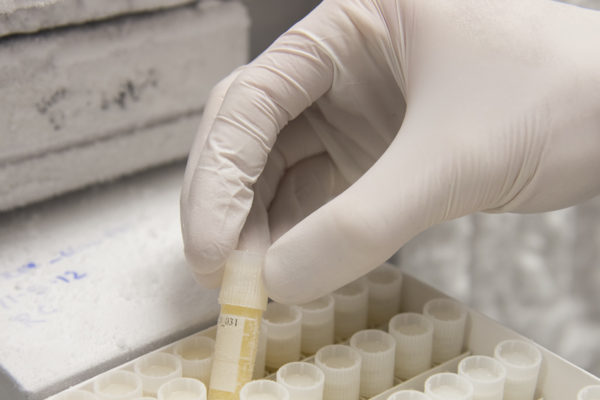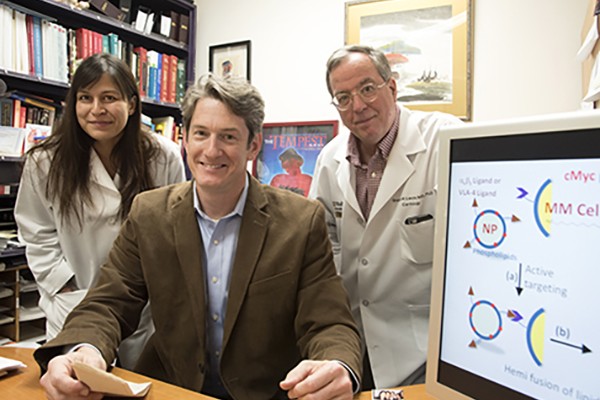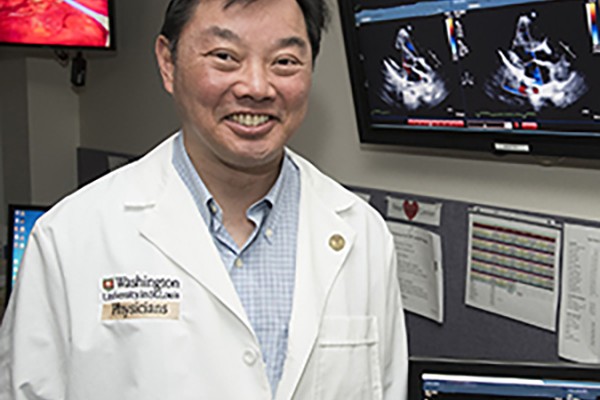Cooper named head of biochemistry and molecular biophysics
John A. Cooper, MD, PhD, has been named head of the Department of Biochemistry and Molecular Biophysics at Washington University School of Medicine.
University names new medical school dean
David H. Perlmutter, MD, has been named executive vice chancellor for medical affairs and dean of the School of Medicine. His tenure begins Dec. 1. A former Washington University faculty member, Perlmutter succeeds Larry J. Shapiro, MD, who is stepping down after leading the School of Medicine for 12 years.
A person’s diet, acidity of urine may affect susceptibility to UTIs
The acidity of urine — as well as the presence of small molecules related to diet — may influence how well bacteria can grow in the urinary tract, a new study shows. The research, led by Jeffrey Henderson, MD, PhD, at Washington University School of Medicine in St. Louis, may have implications for treating urinary tract infections, which are among the most common bacterial infections worldwide.
New clues in mice link cholesterol to fertility
Whether made by the body or ingested through diet, cholesterol plays a vital role in cells. Cholesterol also is a building block of steroids and hormones, including those that trigger puberty and support pregnancy. A new study, led by Daniel Ory, MD, implicates a surprising regulator of cholesterol in cells’ ability to make these hormones, especially in tissues associated with fertility, such as the ovaries.
Nanotherapy effective in mice with multiple myeloma
Researchers have designed a nanoparticle-based therapy that is effective in treating mice with multiple myeloma, a cancer of bone marrow immune cells. Targeted specifically to the malignant cells, these nanoparticles protect their therapeutic cargo from degradation in the bloodstream and greatly enhance drug delivery into the cancer cells.
New technology may reduce deadly complication of bone marrow transplants
Researchers led by John F. DiPersio, MD, PhD, at the School of Medicine have designed a way to mitigate graft-versus-host disease, a common and often life-threatening complication of bone marrow transplants that are used to treat leukemia and other blood cancers. The method also employs a molecular imaging tool to help doctors identify patients most likely to develop this dangerous condition.
Fat signals control energy levels in the brain
An enzyme secreted by the body’s fat tissue controls energy levels in the brain, according to new research led by Shin-ichiro Imai, MD, PhD, of the School of Medicine. The findings, in mice, underscore a role for the body’s fat tissue in controlling the brain’s response to food scarcity, and suggest there is an optimal amount of body fat for maximizing health and longevity.
Finding points to a cause of chronic lung disease
Scientists have long suspected that respiratory viruses play a critical role in the development of chronic lung diseases such as asthma and chronic obstructive pulmonary disease (COPD). Studying mouse and cell models of this process, researchers now have shown how immune cells dispatched to the lung to destroy a respiratory virus can fail to disperse after their job is done, setting off a chain of inflammatory events that leads to long-term lung problems.
Exercise for older mouse mothers lowers risk of heart defects in babies
Older mice genetically prone to bear offspring with heart defects can reduce this risk to that of younger mouse mothers with the same genetic defect through exercise alone, according to new research at the School of Medicine. The study, led by Patrick Y. Jay, MD, PhD, also suggests that the increased risk of congenital heart defects is tied to the age of the mother and not the age of her eggs.
Study sheds new light on asthma, COPD
In cells lining the airway, high levels of certain proteins have long been linked with the overproduction of mucus characteristic of diseases like asthma and COPD. New research from the School of Medicine provides clues to potentially counteract inappropriate mucus production.
View More Stories





